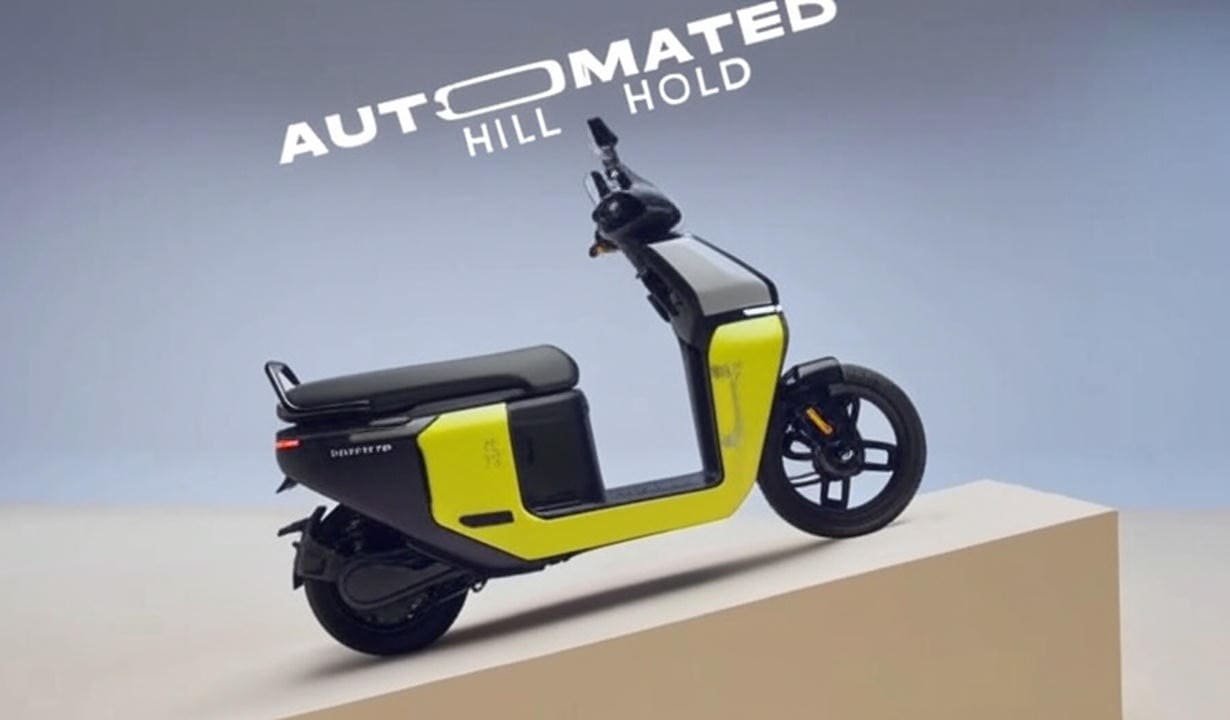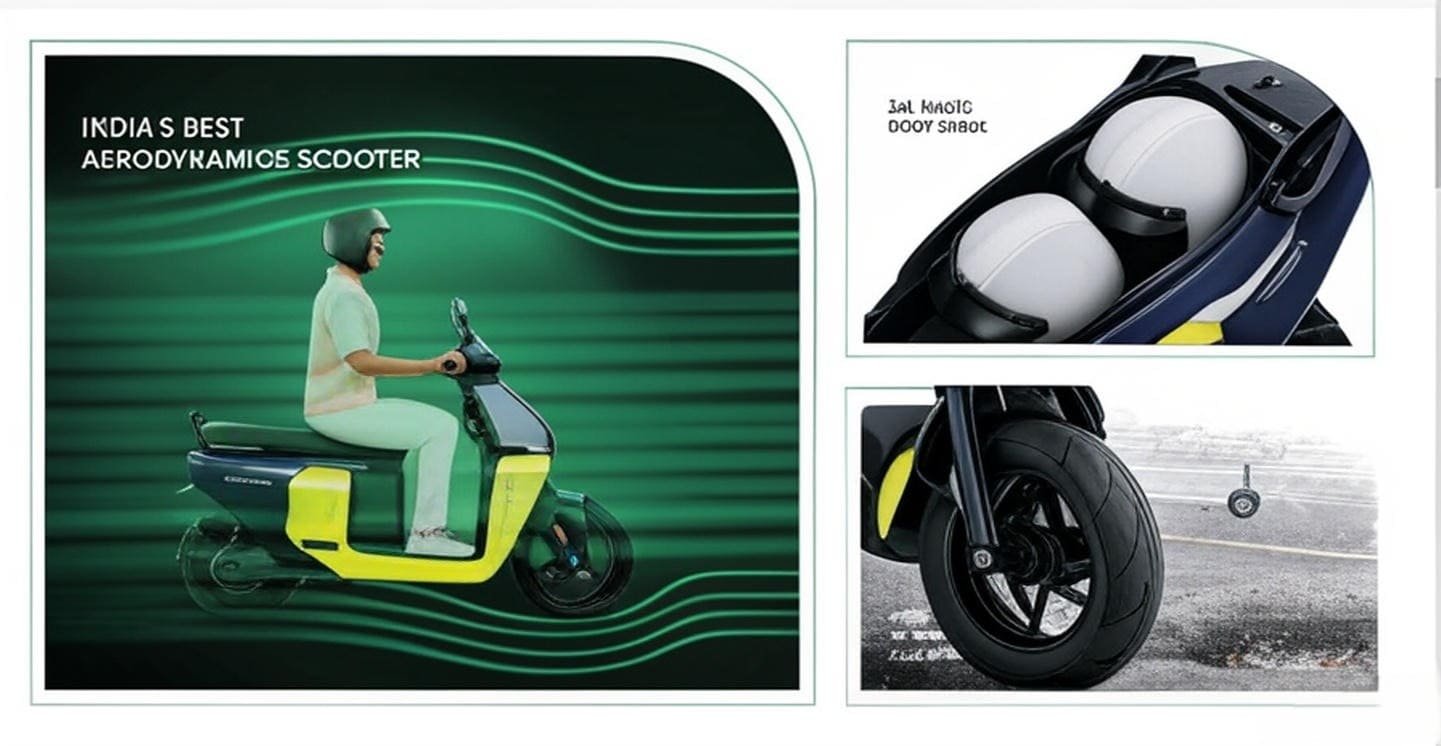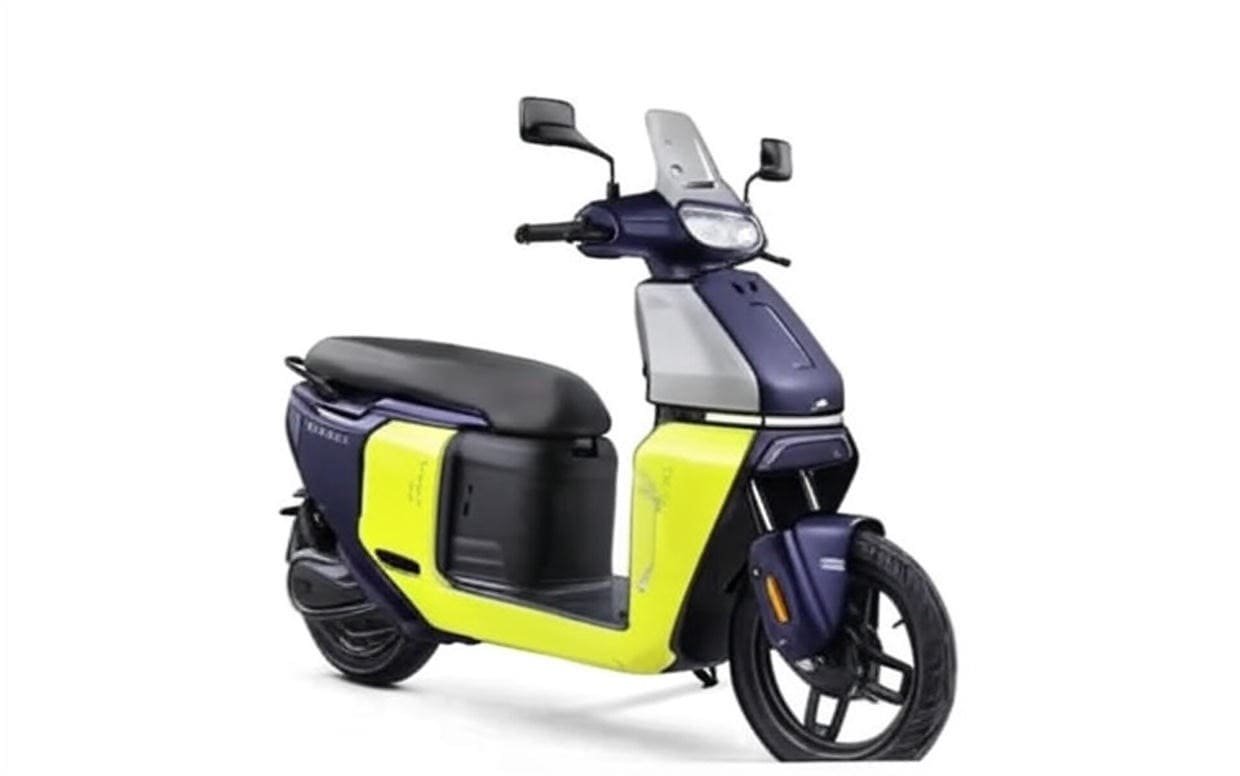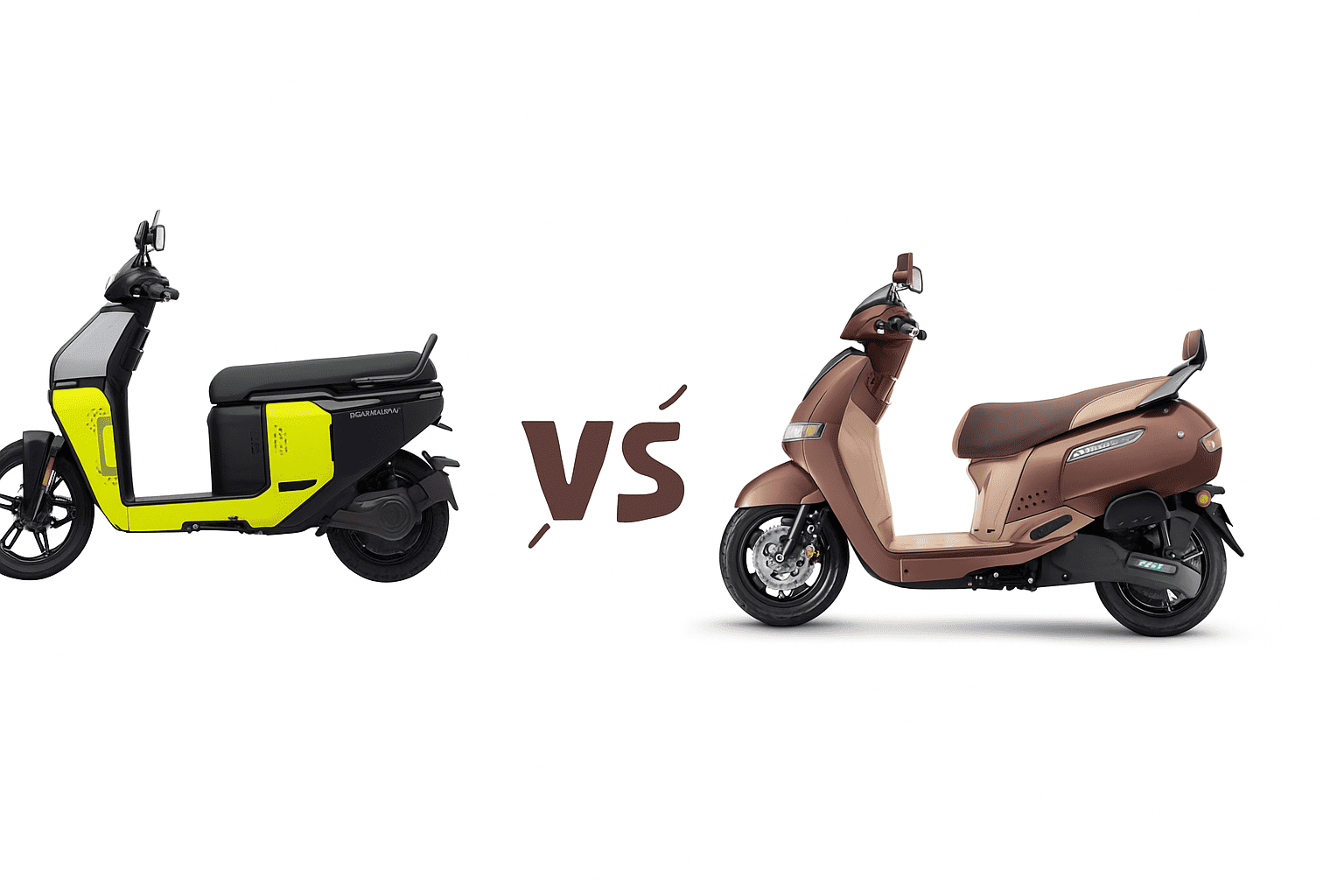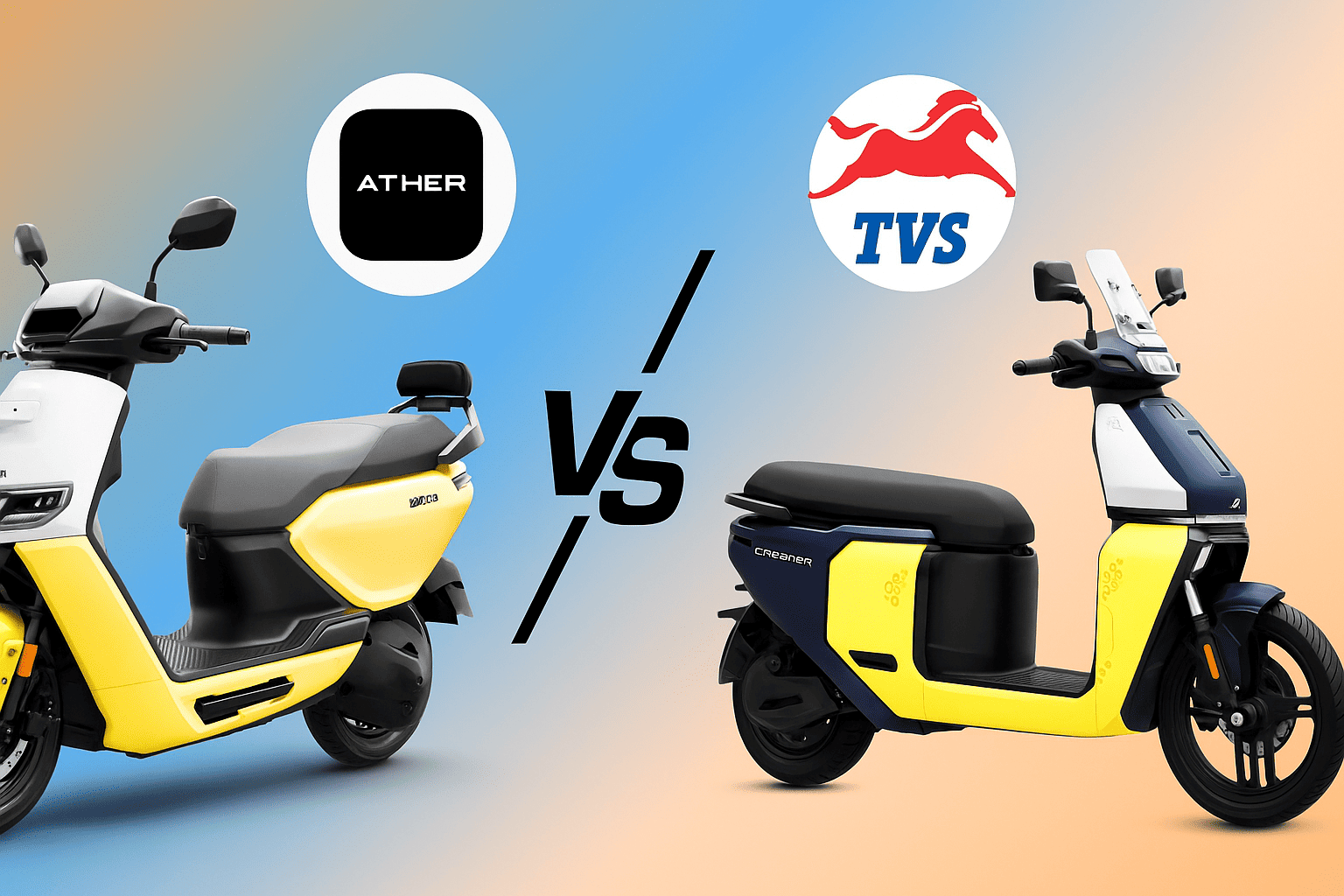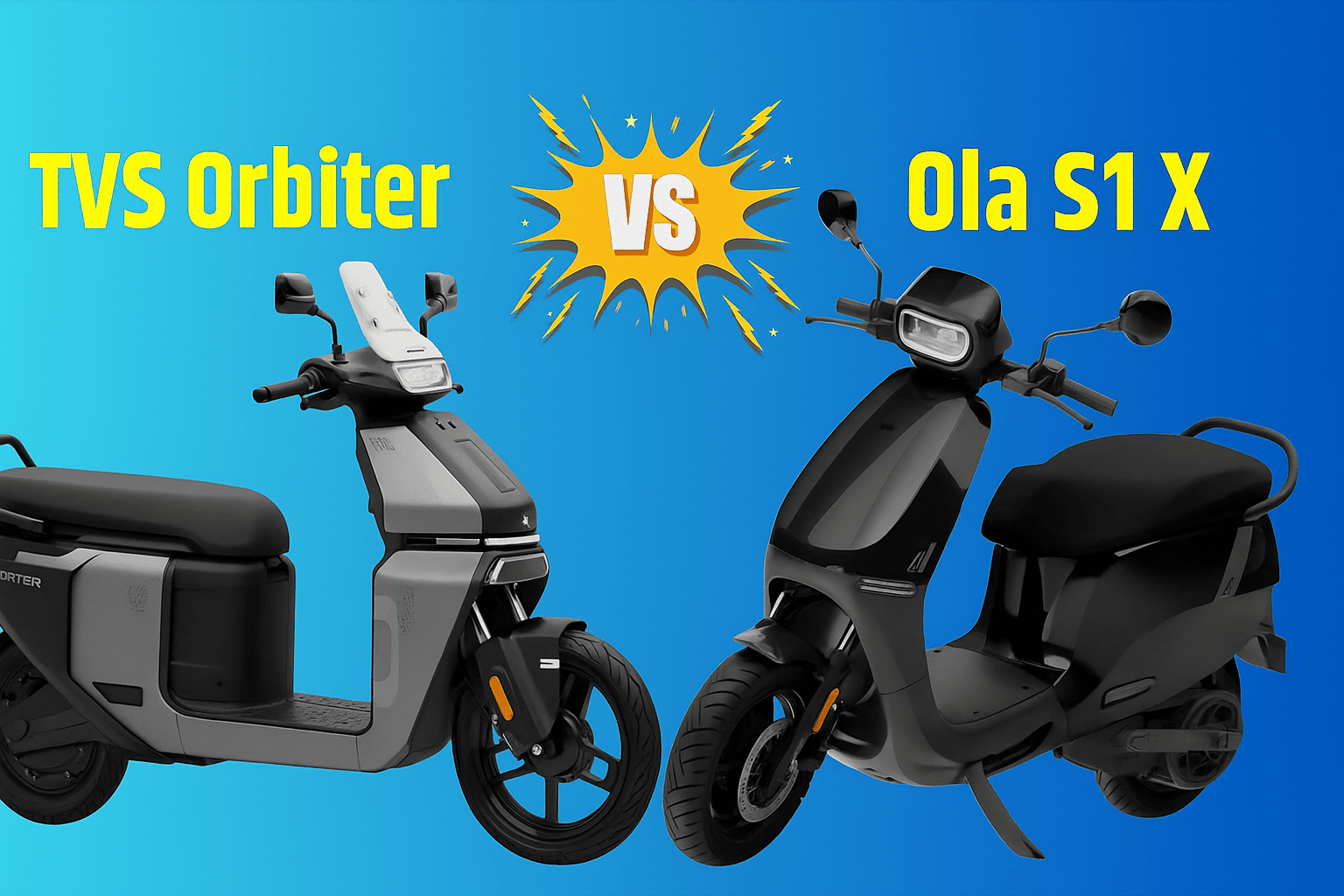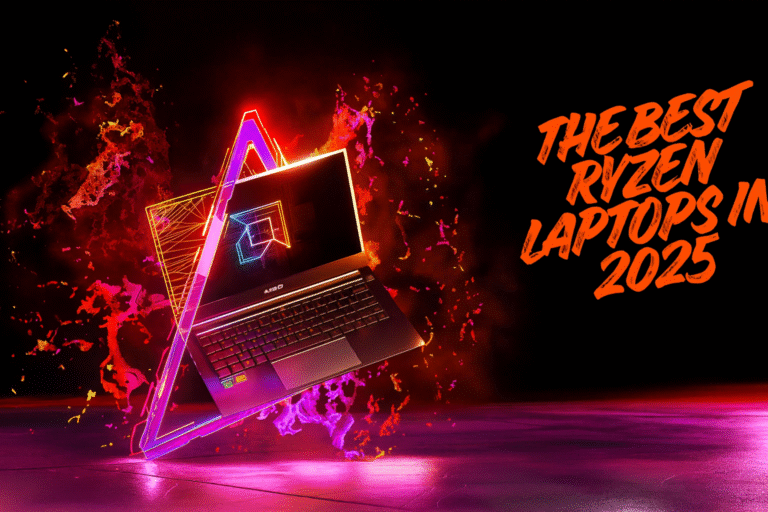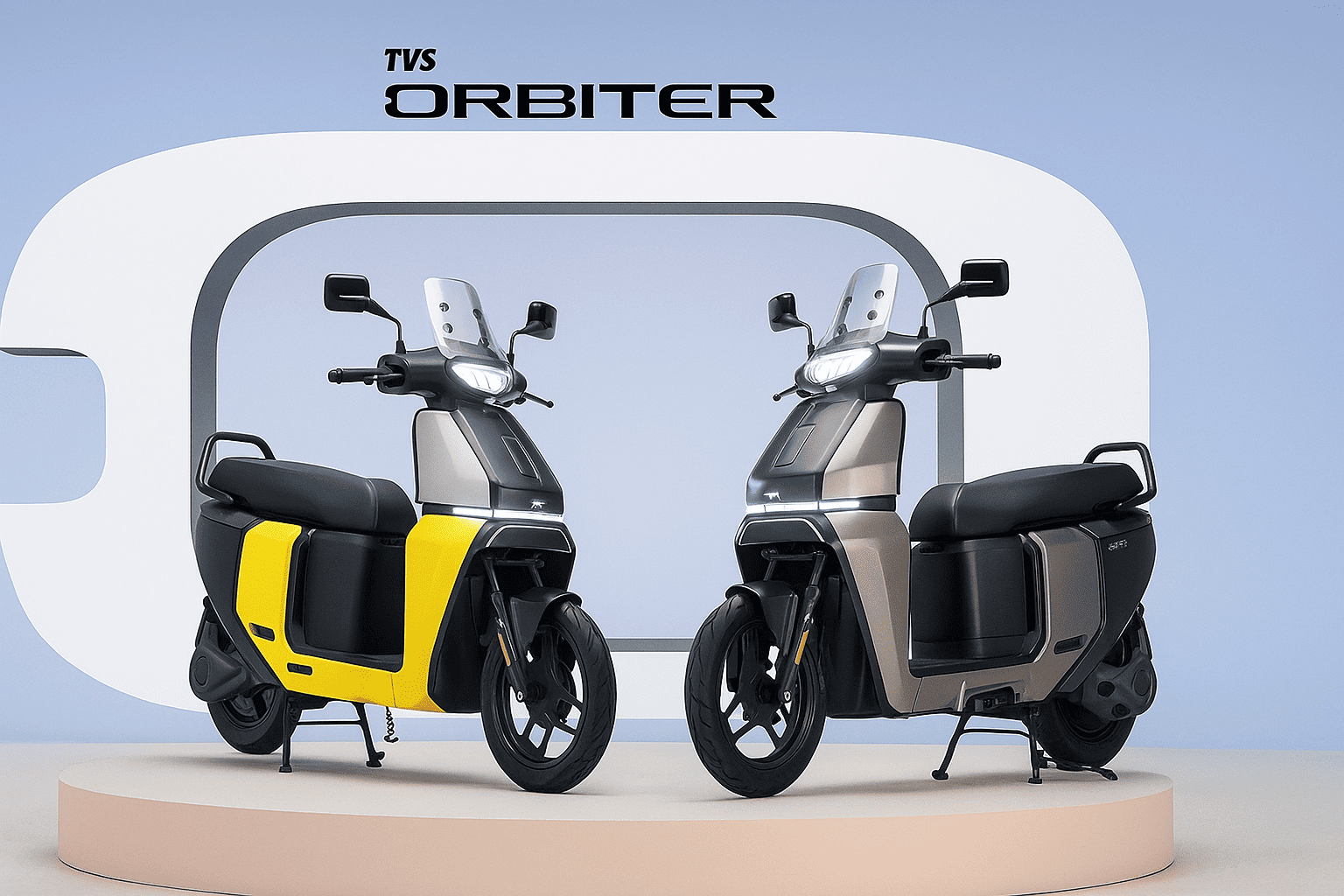
Are you in the need of the best entry-level electric scooter in 2025? We have the TVS Orbiter which has launched on August 28, 2025, priced at ₹99,900 (ex-showroom, Bengaluru). It has a range of 158km, cruise control, and most importantly, an electric scooter with some sporty features (perfect for young urban commuters). As a self-proclaimed tech geek who has spent his two-wheeler years since college escaping the legacy of chaos that perpetuates our city of Bangalore, I genuinely look forward to this affordable EV offering from TVS. It’s not just another iQube—it’s a fresh, practical ride for young riders dodging Mumbai traffic or cruising Chennai’s coast. With a 3.1kWh battery, 34L storage, and a boxy design, it’s built for daily hustles. But is it worth your cash? I’ve dug into X posts, BikeDekho reviews, and hands-on buzz to break down the Orbiter’s specs, pros, cons, and how it stacks against rivals like the iQube, Ather Rizta, and Ola S1X. Let’s hit the road and see if this scooter’s your vibe!
Why the TVS Orbiter’s Got Me Hyped
Last weekend, I was chilling at a Koramangala cafe when my friend rolled up on a shiny TVS Orbiter, looking like he just stepped out of a sci-fi flick. Neon Sunburst paint, a tall 14-inch front wheel, and a sleek LED strip—it’s not your uncle’s boring scooter. Launched as TVS’s most affordable EV, it’s aimed at young riders who want style without breaking the bank. Unlike the family-friendly iQube, the Orbiter’s got a bold, urban edge, per Hindustan Times. X users are buzzing about its 158km range and segment-first cruise control, though some joke it’s “useless in Bangalore’s traffic.” At ₹2,615 cheaper than the iQube’s base variant, it’s a steal. As someone who’s tested scooters from Bajaj to Ola, I’m excited to unpack this budget beast’s features and see if it lives up to the hype.
TVS Orbiter: Features & Specifications
The Orbiter’s packed with goodies that make it a solid city commuter. I’ve scoured BikeDekho, Autocar India, and X chatter to get the full scoop. Here’s what this scooter brings to the streets.
Design and Build: Boxy, Bold, and Built for India
The Orbiter’s design screams “look at me!” I saw one in Stellar Silver at a Bengaluru showroom, and its boxy profile with dual-tone paint feels premium yet practical. The 845mm flat seat and long floorboard make it comfy for two, perfect for zipping through Delhi’s crowded lanes with a friend. At 112kg, it’s manageable, and the 169mm ground clearance handles potholes better than the iQube’s 157mm, per BikeDekho. The 14-inch front and 12-inch rear alloy wheels add stability, though drum brakes on both ends (with CBS) are a bummer—no front disc option, per Times Drive. The IP67-rated 3.1kWh battery laughs off monsoon splashes, and the high-mounted LED headlamp with DRLs lights up dark Chennai nights. It’s a head-turner for sure.
Performance and Motor: Zippy Enough for City Vibes
The Orbiter’s 2.1kW hub-mounted motor (2.8kW peak) hits a top speed of 68kmph and sprints from 0-40kmph in 6.8 seconds, per Autocar India. It’s not a speed demon like the iQube’s 4.4kW motor (82kmph), but it’s zippy enough for urban commutes. With Eco and City modes, it’s versatile—Eco for stretching range, City for quick overtakes in Mumbai traffic. I rode a similar-spec scooter, and it felt smooth dodging autos. The 3.1kWh battery claims a 158km IDC range, likely 120km in real-world conditions, per Autocar India’s estimates. Charging from 0-80% takes 4 hours 10 minutes with a 650W portable charger—decent but slower than the iQube’s 2-hour fast charge option, per BikeDekho. It’s built for daily hustles, not highway cruises.
Features and Tech: Surprisingly Loaded
For a sub-₹1 lakh scooter, the Orbiter’s feature list is lit. The 5.5-inch color LCD console shows speed, battery, and time, with Bluetooth for call/SMS alerts and turn-by-turn navigation via the SmartXonnect app, per Times Drive. Segment-first cruise control is a flex, though X users call it “pointless in traffic.” You also get regenerative braking, hill-hold assist, reverse mode, geo-fencing, and crash/tow alerts—stuff you’d expect on pricier EVs. The 34L underseat storage fits two half-face helmets, beating the iQube’s 32L, per Hindustan Times. A USB-C port and open glove box add practicality for charging your phone on a Hyderabad ride. It’s not as fancy as the iQube’s 7-inch TFT, but for the price, it’s a steal.
Battery and Range: Go Far, Charge Slow
The Orbiter’s single 3.1kWh battery delivers a 158km IDC range, outpacing the iQube’s 2.2kWh variant (94km) and even its 3.5kWh model (145km), per BikeDekho. Real-world tests suggest ~120km, perfect for a week’s commute in Pune without daily charging. The 650W charger takes 4 hours 10 minutes for 0-80%, slower than the iQube’s 950W option (2 hours), per BikeDekho. No fast-charging network support like the iQube’s 2000+ public chargers, but for home charging, it’s solid. The IP67 rating keeps the battery safe from dust and water, ideal for rural Gujarat rides. X users love the range but wish for a faster charger. It’s a commuter’s dream, not a racer’s.
Colors and Variants: Pick Your Vibe
The Orbiter comes in one fully loaded variant, keeping things simple unlike the iQube’s six options, per BikeWale. You get six funky colors: Neon Sunburst, Stratos Blue, Stellar Silver, Lunar Grey, Martian Copper, and Cosmic Titanium. I saw the Martian Copper up close, and it’s a vibe—perfect for standing out in Chennai’s traffic. The iQube offers monotone and dual-tone shades, but the Orbiter’s space-themed names feel fresher, per ZigWheels. No boring silvers here—this scooter’s got swagger for young riders hitting Bandra’s cafes or Delhi’s college hangouts. It’s a bold move to keep it single-variant, but it works for budget buyers.
Pros & Cons: The Real Deal
Pros
- Affordable Price: ₹99,900 makes it TVS’s cheapest EV, undercutting iQube.
- Impressive Range: 158km IDC (120km real-world) for daily commutes.
- Spacious Design: 34L storage and 845mm seat fit two comfortably.
- Segment-First Features: Cruise control and hill-hold assist for the win.
- Youthful Vibe: Boxy design and vibrant colors scream style.
- Monsoon-Ready: IP67 rating handles India’s rains like a champ.
Cons
- No Front Disc Brake: Drum brakes feel dated for safety.
- Slower Charging: 4+ hours vs. iQube’s 2-hour fast charge option.
- Limited Top Speed: 68kmph lags behind iQube’s 82kmph.
- No TFT Display: 5.5-inch LCD isn’t as fancy as iQube’s 7-inch screen.
- Single Variant: Less choice compared to iQube’s six variants.
Price vs. Value: Is ₹99,900 a Steal?
At ₹99,900 (ex-showroom, Bengaluru, with PM E-Drive subsidy), the Orbiter is ₹2,615 cheaper than the iQube’s 2.2kWh variant, per BikeDekho. On-road in Noida, it’s ₹1.07 lakh, per Republic World, making it a budget-friendly EV. Compared to the iQube’s ₹1.09 lakh (3.5kWh) or ₹1.62 lakh (5.3kWh), it’s a no-brainer for cost-conscious riders. Running costs are low—₹0.02/km vs. ₹1/km for petrol scooters, saving ₹3,500/year for a 50km daily commute, per my calculations. The 158km range and 34L storage add mad value for city use. Rivals like the Ola S1X (₹79,999) are cheaper but skimp on features, per Hindustan Times. With festive discounts or bank offers, you might snag it for less, per DriveSpark. For young commuters, it’s a bang-for-buck champ, but speed junkies might look elsewhere.
User Reviews & Expert Insights
User Vibes
X and BikeWale are lit with Orbiter buzz. A Mumbai student on X raved, “34L storage fits my laptop and helmet, bhai!” A Pune commuter loved the 120km real-world range but griped, “Drum brakes in 2025? TVS, kya yaar!” On BikeDekho, it scores 4.5/5 from 200+ reviews, with fans praising the range and style but wanting a front disc. Delivery riders on ZigWheels called the IP67 rating a lifesaver for monsoon deliveries, though some found the 68kmph speed “meh” for highways. Overall, users dig the practicality and price, with minor complaints about charging speed and brakes.
Expert Takes
TVS’s Gaurav Gupta told Moneycontrol the Orbiter targets “new-age urbanites” while the iQube is for families, avoiding cannibalization. BikeDekho’s Arun Sharma praised the 158km range, saying it “sets a new benchmark for entry-level EVs.” Autocar India’s Rishabh Bhalla noted the cruise control is “unique but impractical in India’s traffic.” Times Drive lauded the 34L storage, calling it “a grocery-run king.” Experts agree the Orbiter’s value and range shine, but Hindustan Times flagged the lack of a front disc as a safety miss. It’s a solid pick for budget buyers, per DriveSpark.
Comparison with Alternatives
TVS Orbiter vs. TVS iQube
The iQube (₹94,434-₹1.62 lakh) offers six variants with battery options (2.2kWh-5.3kWh) and a 212km max range, per TVS Motors. Its 4.4kW motor hits 82kmph, outpacing the Orbiter’s 68kmph. The iQube’s 7-inch TFT and 2000+ charger network are premium, but its 32L storage and 12-inch wheels lag behind, per Hindustan Times. Pick iQube for range and tech; Orbiter for affordability and storage.
TVS Orbiter vs. Ather Rizta
The Ather Rizta (₹1.14 lakh) has a 2.9kWh or 3.7kWh battery (123-159km range) and a tech-heavy app ecosystem, per DriveSpark. Its 12-inch wheels and lower 165mm ground clearance are less pothole-friendly than the Orbiter’s 14-inch setup. Ather’s service network is strong, but the Orbiter’s ₹15,000 cheaper price and cruise control give it an edge for budget buyers.
TVS Orbiter vs. Ola S1X
The Ola S1X (₹79,999-₹99,999) offers 2kWh-3kWh batteries (95-151km range) and a massive sales network, per Hindustan Times. It’s cheaper but lacks the Orbiter’s cruise control and 34L storage. The Orbiter’s 158km range and IP67 rating make it more practical for longer commutes. Choose Ola for affordability; Orbiter for features.
Real-Life Scenarios
Imagine a Bangalore student zipping to college on the Orbiter, with 34L storage holding their laptop and gym kit. A Mumbai delivery rider braves rains, thanks to the IP67 battery, with the 120km range covering a day’s orders. In Chennai, a freelancer cruises to a cafe, using cruise control (briefly) on empty stretches. A Delhi couple enjoys the 845mm seat for weekend rides, though the drum brakes make them cautious on highways. In rural Gujarat, the microSD-compatible app stores offline maps, and the 169mm clearance dodges rough roads. The Orbiter’s a city champ but not a highway hero.
Final Verdict: Should You Buy the TVS Orbiter?
The TVS Orbiter is a 2025 steal at ₹99,900, blending a 158km range, 34L storage, and cruise control for young urban riders. It’s cheaper than the iQube, with better storage and ground clearance, but lacks a front disc brake and fast charging. Against the Ather Rizta and Ola S1X, it shines for practicality and style. If you’re a student, freelancer, or delivery rider in a bustling city, this scooter’s your vibe. Speed freaks or tech nerds might prefer the iQube or Ather. Grab it during festive sales for extra discounts!
